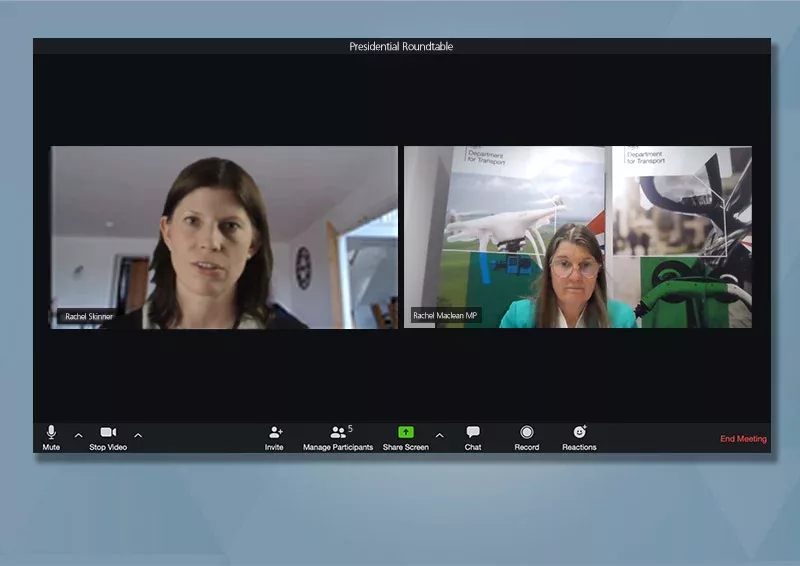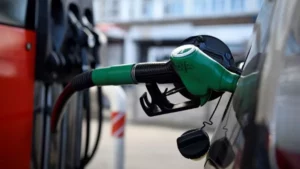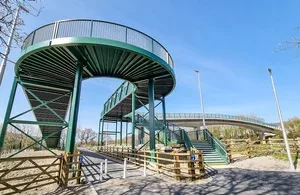Decarbonising transport is crucial to ensuring the UK meets its net-zero target, according to atendees at an online ICE Presidential Breakfast.
This included Rachel Maclean MP, Parliamentary Under Secretary of State at the Department for Transport (DfT), who engaged with business leaders in transport. energy and infrastructure.
Ms Maclean, the Minister responsible for the upcoming Transport Decarbonisation Plan (TDP), talked through the Plan’s objectives and priorities with attendees.
The TDP will follow on from DfT’s Decarbonising transport: setting the challenge, which reviewed existing climate policy and forecasts of future transport emissions at both individual transport mode and whole sector levels. It also set out the challenges needed need to meet to reach net zero transport emissions by 2050.
Rachel Skinner, ICE President and chair of the discussion said, “Transport is critical when thinking about decarbonisation and achieving net-zero, not just in the UK but across the world.
“There is no path to delivering net-zero by 2050 that doesn’t run through decarbonising transport, and in particular road transport, as the transport sector is now the UK’s largest source of carbon emissions. Significant reductions in carbon emissions need to start now.”
There was agreement among attendees that government and industry need to work closely together to achieve decarbonisation of the UK’s transport network. There was also a willingness to drive innovation and help support workers make greener journeys.
The discussion noted that in particular, the role of devolved English regions and Sub-National Transport Bodies (STB) will be key to driving this shift.
For this ‘urgent’ collaboration to happen, there was agreement that government should ensure the TDP is holistic and assigns clear responsibilities, in order to go further and faster on pace and scale.
ICE said that the goal of the TDP should be to deliver a low carbon transport and mobility system that encourages sustainable connectivity. It should also utilise existing networks, alongside new technologies and innovation to stimulate growth and address inequalities. Careful consideration will be needed to align physical with digital connectivity, both of which are needed if to enable the essential interaction of people and goods for the future.





















